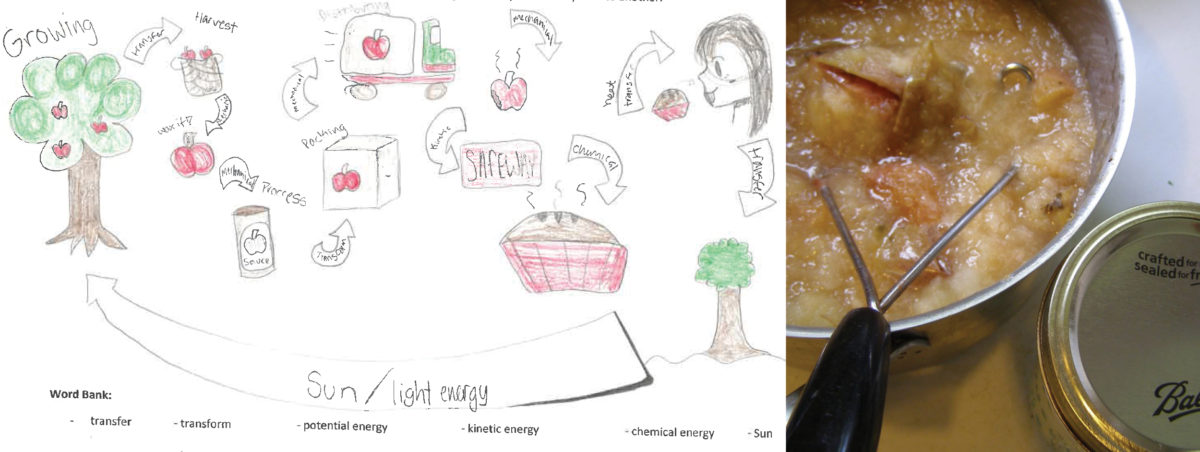Originally published on the ClimeTime website on June 22, 2022
When Anacortes Middle School teacher Tasha Kirby had her class make applesauce last fall, she wasn’t teaching home economics. She was using locally grown apples to help her students make the connection between climate and the food they eat.
Food is central to life, and few subjects are as universally engaging. But many children today don’t know where their food comes from, how it gets to them, or how climate affects its availability. That’s why EarthGen developed “The Future of Food,” a professional development seminar that uses stories of local foods to teach climate change.

Offered in three different regions of the state, “The Future of Food” was tailored to focus on locally relevant food topics. In South Puget Sound (ESD 121), the training highlighted Valerie Segrest’s work with the Muckleshoot Indian Tribe on the connections between food sovereignty and indigenous foods. In the northwest region of the state (ESD 189), speakers focused on how climate change affects the shellfish industry, while in Southwestern Washington, (ESD 112) teachers learned about the effects of climate change on salmon in the Columbia River.
In each region, teachers learned directly from local experts to better understand climate science and its impacts on food in their communities. Many of the sixty teachers who participated have already utilized the resources from “The Future of Food” in lessons with their own students.
Kirby’s students loved making applesauce using only locally-grown apples. But while they were having fun, “Students had some ‘aha’ moments. I don’t think middle school students have a good sense of where their food comes from and how much energy is spent in production, travel, and distribution,” said Kirby.
Tulalip Heritage High School, where Ervanna Little Eagle teaches, is located in the Quil Ceda Estuary, which once provided a varied diet for indigenous people. Her students compared traditional food sources with those that are currently available. They examined how land management choices influenced the change and studied the possibilities for bringing back lost resources.
Visit the EarthGen website for information on more locally relevant training opportunities.